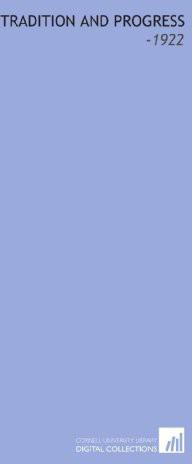Hector Charles Cameron - The Nervous Child: -1919
Here you can read online Hector Charles Cameron - The Nervous Child: -1919 full text of the book (entire story) in english for free. Download pdf and epub, get meaning, cover and reviews about this ebook. year: 2009, publisher: Cornell University Library, genre: Children. Description of the work, (preface) as well as reviews are available. Best literature library LitArk.com created for fans of good reading and offers a wide selection of genres:
Romance novel
Science fiction
Adventure
Detective
Science
History
Home and family
Prose
Art
Politics
Computer
Non-fiction
Religion
Business
Children
Humor
Choose a favorite category and find really read worthwhile books. Enjoy immersion in the world of imagination, feel the emotions of the characters or learn something new for yourself, make an fascinating discovery.
- Book:The Nervous Child: -1919
- Author:
- Publisher:Cornell University Library
- Genre:
- Year:2009
- Rating:4 / 5
- Favourites:Add to favourites
- Your mark:
- 80
- 1
- 2
- 3
- 4
- 5
The Nervous Child: -1919: summary, description and annotation
We offer to read an annotation, description, summary or preface (depends on what the author of the book "The Nervous Child: -1919" wrote himself). If you haven't found the necessary information about the book — write in the comments, we will try to find it.
The Nervous Child: -1919 — read online for free the complete book (whole text) full work
Below is the text of the book, divided by pages. System saving the place of the last page read, allows you to conveniently read the book "The Nervous Child: -1919" online for free, without having to search again every time where you left off. Put a bookmark, and you can go to the page where you finished reading at any time.
Font size:
Interval:
Bookmark:

CHAPTER I. DOCTORS, MOTHERS, AND CHILDREN
CHAPTER II. OBSERVATIONS IN THE NURSERY
CHAPTER III. WANT OF APPETITE AND INDIGESTION
CHAPTER IV. WANT OF SLEEP
CHAPTER V. SOME OTHER SIGNS OF NERVOUSNESS
CHAPTER VI. ENURESIS
CHAPTER VII. TOYS, BOOKS, AND AMUSEMENTS
CHAPTER VIII. NERVOUSNESS IN EARLY INFANCY
CHAPTER IX. MANAGEMENT IN LATER CHILDHOOD
CHAPTER X. NERVOUSNESS IN OLDER CHILDREN
CHAPTER XI. NERVOUSNESS AND PHYSIQUE
CHAPTER XII. THE NERVOUS CHILD IN SICKNESS
CHAPTER XIII. NERVOUS CHILDREN AND EDUCATION ON SEXUAL MATTERS
CHAPTER XIV. THE NERVOUS CHILD AND SCHOOL This page formatted 2004 Blackmask Online.
This page formatted 2004 Blackmask Online.
http://www.blackmask.com
THE NERVOUS CHILD
PUBLISHED BY THE JOINT COMMITTEE OF HENRY FROWDE, HODDER &STOUGHTON 17 WARWICK SQUARE, LONDON, E.C. 4
THE
NERVOUS CHILD
BY
HECTOR CHARLES CAMERON M.A., M.D.(CANTAB.), F.R.C.P.(LOND.) PHYSICIAN TO GUY'S HOSPITAL AND PHYSICIAN IN CHARGE OF THE CHILDREN'S DEPARTMENT, GUY'S HOSPITAL
RESPECT the child. Be not too much his parent. Trespass not on
his solitude.EMERSON.
LONDON HENRY FROWDE HODDER &STOUGHTON OXFORD UNIVERSITY PRESS WARWICK SQUARE, E.C. 1920
First Edition 1919 Second Impression 1930
PRINTED IN GREAT BRITAIN BY MORRISON &GIBB LTD., EDINBURGH
PREFACE.To-day on all sides we hear of the extreme importance of Preventive Medicine and the great future which lies before us in this aspect of our work. If so, it follows that the study of infancy and childhood must rise into corresponding prominence. More and more a considerable part of the Profession must busy itself in nurseries and in schools, seeking to apply there the teachings of Psychology, Physiology, Heredity, and Hygiene. To work of this kind, in some of its aspects, this book may serve as an introduction. It deals with the influences which mould the mentality of the child and shape his conduct. Extreme susceptibility to these influences is the mark of the nervous child.
I have to thank the Editors of The Practitioner and of The Child , respectively, for permission to reprint the chapters which deal with Enuresis and The Nervous Child in Sickness. To Dr. F.H. Dodd I should also like to offer thanks for helpful suggestions.
H.C.C.
March 1919.
THE NERVOUS CHILD
CHAPTER I. DOCTORS, MOTHERS, AND CHILDRENThere is an old fairy story concerning a pea which a princess once slept upona little offending pea, a minute disturbance, a trifling departure from the normal which grew to the proportions of intolerable suffering because of the too sensitive and undisciplined nervous system of Her Royal Highness. The story, I think, does not tell us much else concerning the princess. It does not tell us, for instance, if she was an only child, the sole preoccupation of her parents and nurses, surrounded by the most anxious care, reared with some difficulty because of her extraordinary delicacy, suffering from a variety of illnesses which somehow always seemed to puzzle the doctors, though some of the symptomsthe vomiting, for example, and the high temperaturewere very severe and persistent. Nor does it tell us if later in life, but before the suffering from the pea arose, she had been taken to consult two famous doctors, one of whom had removed the vermiform appendix, while the other a little later had performed an operation for adhesions. At any rate, the story with these later additions, which are at least in keeping with what we know of her history, would serve to indicate the importance which attaches to the early training of childhood. Among the children even of the well-to-do often enough the hygiene of the mind is overlooked, and faulty management produces restlessness, instability, and hyper-sensitiveness, which pass insensibly into neuropathy in adult life.
To prevent so distressing a result is our aim in the training of children. No doubt the matter concerns in the first place parents and nurses, school masters and mistresses, as well as medical men. Yet because of the certainty that physical disturbances of one sort or another will follow upon nervous unrest, it will seldom happen that medical advice will not be sought sooner or later; and if the physician is to intervene with success, he must be prepared with knowledge of many sorts. He must be prepared to make a thorough and complete physical examination, sufficient to exclude the presence of organic disease. If no organic disease is found, he must explore the whole environment of the child, and seek to determine whether the exciting cause is to be found in the reaction of the child to some form of faulty management.
For example, a child of two or three years of age may be brought to the doctor with the complaint that defaecation is painful, and that there has existed for some time a most distressing constipation which has resisted a large number of purgatives of increasing strength. Whenever the child is placed upon the stool, his crying at once begins, and no attempts to soothe or console him have been successful. It is not sufficient for the doctor in such a case to make an examination which convinces him that there is no fissure at the anus and no fistula or thrombosed pile, and to confine himself to saying that he can find nothing the matter. The crying and refusal to go to stool will continue after the visit as before, and the mother will be apt to conclude that her doctor, though she has the greatest confidence in him for the ailments of grown-up persons, is unskilled in, or at least not interested in, the diseases of little children. If, on the other hand, the doctor pursues his inquiries into the management of the child in the home, and if, for example, he finds that the crying and resistance is not confined to going to stool, but also takes place when the child is put to bed, and very often at meal-times as well, then it will be safe for him to conclude that all the symptoms are due to the same causea sort of negativism which is apt to appear in all children who are directed and urged too much, and whose parents are not careful to hide from them the anxiety and distress which their conduct occasions.
If this diagnosis is made, then a full and clear explanation should be given to the mother, or at any rate to such mothersand fortunately they are in the majoritywho are capable of appreciating the point of psychology involved, and of correcting the management of the child so as to overcome the negativism. To attempt treatment by prescribing drugs, or in any other way than by correcting the faulty management, is to court failure. As Charcot has said, in functional disorders it is not so much the prescription which matters as the prescriber.
Font size:
Interval:
Bookmark:
Similar books «The Nervous Child: -1919»
Look at similar books to The Nervous Child: -1919. We have selected literature similar in name and meaning in the hope of providing readers with more options to find new, interesting, not yet read works.
Discussion, reviews of the book The Nervous Child: -1919 and just readers' own opinions. Leave your comments, write what you think about the work, its meaning or the main characters. Specify what exactly you liked and what you didn't like, and why you think so.





![Clark - Libraries in the Medieval and Renaissance Periods: The Rede Lecture Delivered June 13, 1894, by J. W. Clark [ 1894 ]](/uploads/posts/book/207578/thumbs/clark-libraries-in-the-medieval-and-renaissance.jpg)

![John Willis Clark - Libraries in the Medieval and Renaissance Periods: The Rede Lecture Delivered June 13, 1894, by J. W. Clark [ 1894 ]](/uploads/posts/book/60919/thumbs/john-willis-clark-libraries-in-the-medieval-and.jpg)
